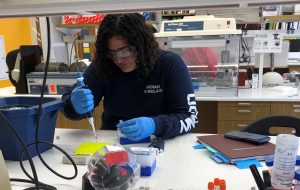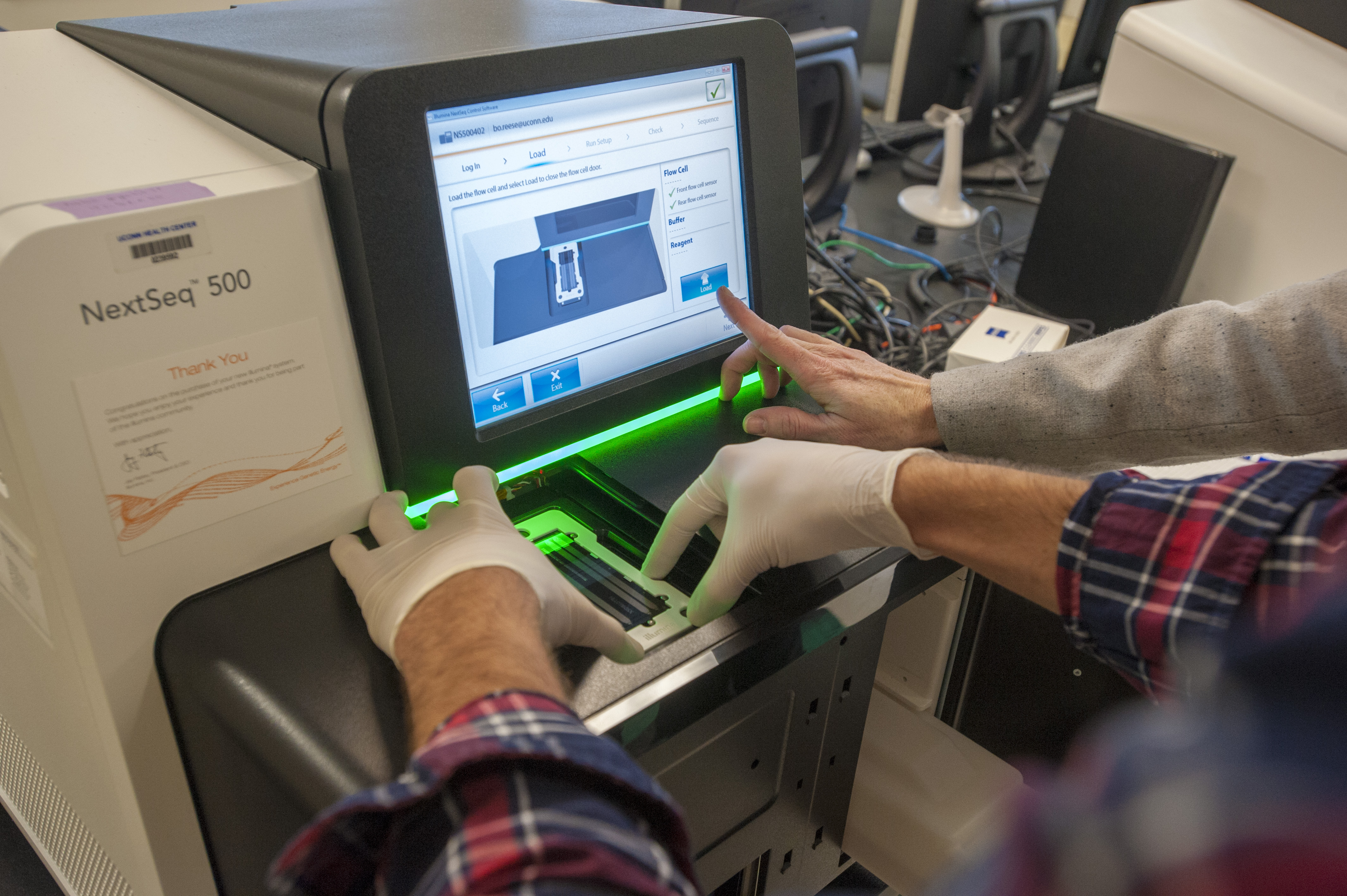UConn is collaborating with Southern Connecticut State University (SCSU) on a program designed to teach critical research skills to college graduates seeking employment in growing fields like genomics and biotechnology.
The universities are partnering through a National Science Foundation–funded initiative called Research and Mentoring for Postbaccalaureates in the Biological Sciences (RaMP). UConn and SCSU were awarded a $3 million grant to implement a program, just one of 12 programs nationally to be funded.
The program is designed to teach research skills to college graduates from underserved and underrepresented communities throughout Connecticut. It will support three 10-member cohorts over a three-year period, with participants receiving stipends of $32,000 for cost of living and other expenses.
UConn and SCSU faculty have devised a program that integrates research and mentorship training opportunities in molecular and computational biology. The program specifically seeks applicants with limited research experience, in order to provide them an opportunity to develop foundational skills and explore careers in research and biological sciences.

“This partnership between UConn and Southern Connecticut State University shows what our public institutions are capable of when we combine our efforts,” says UConn interim President Radenka Maric. “Providing students from underrepresented communities with cutting-edge research skills is something that not only benefits our universities, but also our entire state. The people of Connecticut can truly be proud of this collaboration.”
UConn has five researchers involved in the collaboration, with ecology and evolutionary biology professor Elizabeth Jockusch serving as the lead investigator. All UConn faculty members are from the College of Liberal Arts and Sciences. Christine Broadbridge, the executive director of Research and Innovation at SCSU and past president of the Connecticut Academy of Science and Engineering, co-leads the team at SCSU, along with Candy Hwang, an associate professor of chemistry.
The collaboration between UConn and SCSU also incorporates the Bioscience Academic and Career Pathway (BioPath), a partnership between the city of New Haven and SCSU aimed at growing participation in the bioscience pipeline and workforce, which is especially beneficial to program participants seeking future employment in Connecticut. UConn and SCSU faculty will offer considerable mentorship, as well as networking opportunities, training, and outreach, to provide the cohorts with competitive workforce skills.
Broadbridge says there is great demand for well-trained and educated workers within STEM industries. If utilized correctly, she believes, the RaMP grant could help set a standard for the state and be a model for the nation.
“For UConn and SCSU to be working together and partnering on this very important issue, and for us to be able to level the playing field to allow underserved populations to participate, is huge,” says Broadbridge. “SCSU is an ideal partner for UConn given its strong research programs and expertise in providing high quality research experiences and skills development, in particular, targeting underrepresented and underserved populations.”
The work itself will focus on genomics, including for endangered species, in collaboration with the UConn Institute for Systems Genomics. Cohorts will conduct projects to describe the species’ genomes and identify potentially new genes. Additionally, the program participants will immerse themselves in individual lab research projects to characterize the function of novel genomic elements and their potential links to new traits in diverse species.
“It teaches students to contribute to the global effort of conservation,” says Rachel O’Neill, a UConn Board of Trustees Distinguished Professor in Molecular and Cell Biology and co-lead. “We are doing this as a community of scientists on an international scale.”
Recruitment gets underway this fall for the first cohort of research trainees in August of 2023. Organizers will advertise nationally, concentrating efforts on four-year college graduates who attended community college or come from high needs public school districts. The program will begin with a three-week “bridge to research” bootcamp to bring participants up to speed on the necessary skills.
Jockusch says that the New Haven region that SCSU serves has done a good job building its biotech sector and UConn offers cutting-edge training in genomics that is in demand. In addition to the potential of intrastate research collaboration and industry development, she anticipates the program will be a boon for the participants and inspire their occupational pursuits.
“We hope that they like it and decide to stick to research for the rest of their careers,” Jockusch says.



